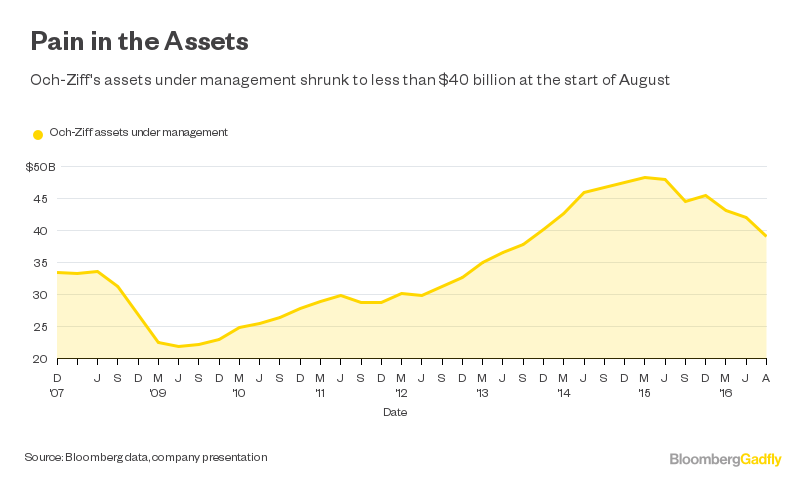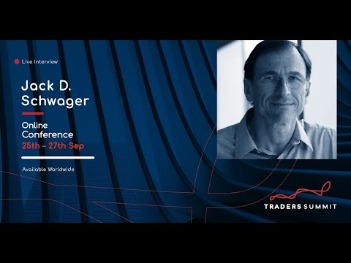Hedge Fund Market Wizards
Table of Contents Heading
- Mastering The Market Cycle
- The Lifecycle Trade
- Market Wizards: Interviews With Top Traders
- Stock Investing For Dummies
- Best Books
- Hedge Fund Market Wizards: How Winning Traders Win (a Review)
100 % of Ahmet’s net worth is invested in the funds managed by the firm . Anyone who has connected poker with trading will know Ed Thorp for his pathbreaking work on card counting in Beat the Dealer .
Avoid expensive trading blunders with this hands-on workbook designed to test readers’ investment savvy. Developed by a popular stock trading instructor, The Stock Market Course Workbook quizzes readers on their knowledge of the concepts presented in Fontanills’s The Stock Market Course. Because mistakes are costly in the stock market, this accessible study guide provides readers with the opportunity to trade “fake money” before risking their real assets in the market. The invaluable lessons learned in this workbook could save readers thousands of dollars in investment mistakes.
Mastering The Market Cycle
Following are notes from the various interviews — simply what I picked up as relevant on this round of reading, not indicative necessarily of what is most generally important or essential. The top three interviews to me were probably Ray Dalio , Joel Greenblatt and Jamie Mai . Jimmy Balodimas, Jeff Woodriff, Edward Thorp — felt less relevant as their style is beyond my personality or intellect, but it was still good reading about them, Thorp in particular. Goodreads helps you keep track of books you want to read. Action Alerts PLUS is a registered trademark of TheStreet, Inc.
Moreover, the very fact that investors flocked into energy funds based on recent past performance meant that the managers of these funds had to deploy the inflow of investor assets into this sector, causing energy stocks to become even more overpriced. Although Daly’s stock selection contributed to his success, being out of the market when the environment was highly averse to his strategy was the key factor underlying his superior performance.
The Lifecycle Trade
Schwager himself ranks Thorpe a shared number one with Jim Simmons with regards to having the best investment track record of all times. Interviews with some of the best traders and investors in the world highlighting their strategies. Schwager has written another Must Read market wizards book. If you are interested in capital markets, read this book. Second, hedge funds, and particularly hedge funds of funds, generally have far lower volatility than equity indexes, and, in my opinion, return/risk is a far more appropriate performance measure than return. Regarding hedge funds, I don’t want to be a defender of hedge fund fees.
Other strategies include finding uncorrelated trades, inefficiently priced options, and fundamental analysis. The moral of the story is to find what works for you and to continuously adapt your strategy. A series of over a dozen interviews, mostly with traders practising a combination of Fundamental / Technical, and virtually no algorithmic perspective outside of Thorpe and one other person. If one hasn’t done much trading on their own account, a lot of the interviews will probably pass through one’s memory, as much of the interviews are really specific and most of the book cannot be cohesively put under one or two themes. More like a dozen or more themes, making retention without concrete experience difficult. This is yet another classic in the Market Wizards series. Schwager interviews the top HF managers in the world, with a proven track record of low volatility and excess returns, and asks all the right questions.
The level of detachment among the wizards suggests that traders have a distinctive psychological makeup, a subject that would be interesting to explore further. The Lifecycle Trade is the first book I have read that could help an equities trader gain that skill in a methodical and systematic way.
Market Wizards: Interviews With Top Traders
Or, in other words, the trades not taken were more important than the trades taken. Omni’s 19.4 percent average annual compounded return is impressive, but what truly sets Omni apart is that it achieved these strong returns while containing the worst peak-to-valley equity drawdown to a modest 7 percent. As a result of the combination of strong gains and moderate losses, the fund has an extremely high Gain to Pain ratio of 4.1. (See Appendix A for an explanation of the Gain to Pain ratio.) In 2008, an absolutely disastrous year for event-driven hedge funds—the Hedge Fund Research index for this sector was down 22 percent for the year—Omni was actually up 15 percent.

However, in order for this strategy to succeed, you need to take a very long-term view, and you need to be sure that you have done the right research into the fundamentals that are underpinning the stock picks. The key to this success, Schwager states, has been his enthusiasm for diversification and his refusal to use correlations to inform these choices. Instead, he looks at the underlying factors that are driving asset prices at any given time, and tailors his approach to these rather than historical correlations, which can change at any time. By looking for markets that have different drivers, he can achieve diversification by making truly un-correlated trades. By leveraging the huge resources at his disposal, his firm are able to do deep research into the behaviour of every single market, and operate confidently in all of them.
Stock Investing For Dummies
For example, if you have a strategy that occasionally makes big profits, and employs a risk management strategy to reduce downside risk, then most of the volatility is on the upside – and therefore the risk associated with that strategy might be fairly low. All trademarks and registered trademarks appearing on oreilly.com are the property of their respective owners.
Cornwall seeks highly asymmetric investments, in which the upside potential significantly exceeds the downside risk, across a broad spectrum of strategies ranging from trades that seek to benefit from market inefficiencies to thematic fundamental trades. The firm has produced an average annual compounded net return of 40 percent . Ultimately, Benedict proved to be as consistent in success as he was in failure. Benedict’s transition point came in 1989 when he was hired by Spear, Leeds & Kellogg to be an option specialist in the XMI index on the American Stock Exchange. As a specialist, Benedict gained some much needed experience and developed a feel for the markets.
What happens when ordinary people are taught a system to make extraordinary money? Richard Dennis made a fortune on Wall Street by investing according to a few simple rules.

Having made his name as an event-driven investor, Joel Greenblatt made so much money for his investors that he had to close the fund down, simply because it had grown to a size that was too big to pursue the same types of opportunities. He then moved into value investing, a strategy that was more compatible with having a larger amount of assets under management. The key to his success with this can be summarised by the following philosophy – value investing works, but not all of the time, and that is why it continues to work.
Best Books
A great example is Kevin Daly, who, when I interviewed him for “Hedge Fund Market Wizards,” had achieved a cumulative gross return of 870% in the 12 years since the inception of his fund in late 1999, a time interim during which the S&P was about breakeven. And even though Daly is an equity hedge fund manager, implying a manager who trades both from the short and long side, shorts were always a very small part of his portfolio, almost invariably a single-digit percentage of the portfolio. This is the subject of a new book by futures and hedge fund expertJack Schwager. The title is “Market Wizards” and we sat down with Schwager recently to discuss investment strategy and new disruptive technologies.
- By using this site, you agree to the Terms of Use and Privacy Policy.
- When uncertainty or unknown risks increase, the expected payoff has to increase; more “gain to pain” is required.
- I don’t think I have ever been to a more unusual location for a hedge fund office—although the manager I had visited years ago located above a urology office in Brooklyn, New York, is probably a close second.
- Mr. Schwager is a frequent seminar speaker and has lectured on a range of analytical topics including the characteristics of great traders, investment fallacies, hedge fund portfolios, managed accounts, technical analysis, and trading system evaluation.
- Conversely, you can have strategies that have a high volatility with a very low risk.
They were featured in the film adaptation of The Big Short, fictionalized with the names Charlie Geller, Jamie Shipley and Ben Rickert . This has resulted in them being widely known for their investments running up to the financial crash in . What separates the world’s top traders from the vast majority of unsuccessful investors? In this iconic financial classic, Jack Schwager sets out to answer this question in his interviews with superstar money-makers including Bruce Kovner, Richard Dennis, Paul Tudor Jones, Michel Steinhardt, Ed Seykota, Marty Schwartz, Tom Baldwin, and more in this audiobook. A Complete Guide to the Futures Market is the comprehensive resource for futures traders and analysts.
Hedge Fund Market Wizards: How Winning Traders Win (a Review)
As so many traders today have been inspired by the previous Market Wizards books it is evident that most of those included in this book think it an honour to be asked to participate. They become participants in a continuous process, a sort of family chronicle, where they can inspire future traders.
The wizards understand their personal capacity for taking risk and their skill in measuring it. They see the difference between risk intelligence and risk aversion . When a divergence occurs between their risk measure and their willingness to accept risk, good traders walk away.

We have waited till this point before beginning a marketing effort to make traders aware of the Fundseeder website. In fact, this is only the second interview I have done since the site launch. The author of the ‘Market Wizards’ books shares his advice about investment strategy and discusses new disruptive technologies. written from a trader’s perspective With the keen insight and perspective that have made him a market legend, Jack D. Schwager explores, explains, and examines the application of technical analysis in futures trading. I don’t think I have ever been to a more unusual location for a hedge fund office—although the manager I had visited years ago located above a urology office in Brooklyn, New York, is probably a close second. To begin, Ramsey manages his fund from that hotbed of hedge fund activity—St. If I had been driven to Ramsey’s office by a taxi, I would have sworn the driver had made a mistake or that I had incorrectly copied the address.
About Jack D Schwager
I have read one of these books and i must say it’s worth it. To learn the insights from people who work in the industry is amazing.

